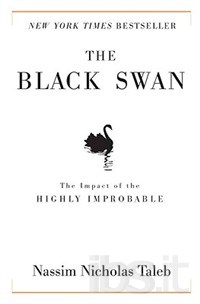The Importance of Taleb’s System: From the Fourth Quadrant to the Skin in the Game

Branko Milanovic explores the impact and importance of Nassim Nicholas Taleb's work.
Several weeks ago on Twitter I wrote (in an obviously very short form) why I thought that Taleb was one of the most important thinkers today. Let me explain in greater detail. Taleb went from (a) technical observations about non-Gaussian distributions of some phenomena to (b) generalization of what this means for our perception of reality and the way we comprehend things (epistemology) to (c) methodology of knowledge and the role of inductive thinking to finally (d) a statement on ethics. To convey this he created a new type of writing. I will leave this last part undiscussed, but whoever has read Taleb knows that his writing style is absolutely original and like Borges’ can be imitated but never fully mastered.
Let me now explain each of the four points. My original acquaintance with Taleb’s writings (and this may be true for many other people) came from his Black Swan and the sudden celebrity status of somebody who has seen the Great Recession coming. But while this may or may not be true, I think that it is of quite secondary, or altogether minor, importance. What Taleb has done with his Fooled by Randomness and Black Swan is to have directed our attention to a class of phenomena that exhibit very skewed distributions to the right and fat tails. It is important to point out that there are two facts here: high-end values and their relatively great frequency (as compared to Gaussian distributions).
 Following researchers like Benoit Mandelbrot (who worked a lot on Paretian distributions) Taleb argued that the number of phenomena with such asymmetric distributions is much greater than was commonly thought and that lots of our thinking errs by tacitly assuming normal distributors. Like Moliere’s Mr. Jourdain we have become Gaussian without thinking or knowing that we are. This can have nefarious consequences. Take an example that Taleb mentions. The distribution of personal weight is Gaussian; thus when we build elevators that carry people we can at most assume that there may be, at any given time, (say) eight persons weighting 250 pounds each in the elevator. Let us add another 1000 pounds for safety and we can be pretty confident that an elevator that can handle 3000 pounds will be safe. But then suppose we are constructing a flood dyke. Flood levels are not normally distributed. Moreover even the last highest flood value does not guarantee that the following flood cannot be worse. Building safeguard for floods is much harder: we can imagine that the worst future flood may be five times worse than any that we know, but it could turn out to be ten times worse: “the odds of rare events are simply not computable” (Antifragile, p. 7). The number of such phenomena like flood is huge: income and wealth distributions, size of cities (with all that it implies for urban planning), number of victims in wars etc.
Following researchers like Benoit Mandelbrot (who worked a lot on Paretian distributions) Taleb argued that the number of phenomena with such asymmetric distributions is much greater than was commonly thought and that lots of our thinking errs by tacitly assuming normal distributors. Like Moliere’s Mr. Jourdain we have become Gaussian without thinking or knowing that we are. This can have nefarious consequences. Take an example that Taleb mentions. The distribution of personal weight is Gaussian; thus when we build elevators that carry people we can at most assume that there may be, at any given time, (say) eight persons weighting 250 pounds each in the elevator. Let us add another 1000 pounds for safety and we can be pretty confident that an elevator that can handle 3000 pounds will be safe. But then suppose we are constructing a flood dyke. Flood levels are not normally distributed. Moreover even the last highest flood value does not guarantee that the following flood cannot be worse. Building safeguard for floods is much harder: we can imagine that the worst future flood may be five times worse than any that we know, but it could turn out to be ten times worse: “the odds of rare events are simply not computable” (Antifragile, p. 7). The number of such phenomena like flood is huge: income and wealth distributions, size of cities (with all that it implies for urban planning), number of victims in wars etc.
These are the phenomena where the averages carry very little informational content, and even variances do not necessarily mean much (variance is often undefined in Pareto distributions). “Variance…is epistemologically, a measure of lack of knowledge about the average; hence the variance of variance is, epistemologically, a measure of lack of knowledge about the lack of knowledge of the mean” (Black Swan, p. 353). We are dealing here with what Taleb calls the “fourth quadrant”, the unknown unknowns.
From that series of observations that represent the core of Black Swan, Taleb moves to the question of how we comprehend things and learn about them. An empirically-based observational approach leads him to prefer inductive, “tinkering” approach to deductive one. Moreover, the tinkering approach was linked in Antifragile to not only robustness (that is, not being negatively affected by volatility) but to a newly defined characteristic of “anti-fragility”, that is of being positively affected (thriving) in conditions of volatility. His view is that only systems that have been created by a long process of tinkering (i.e., evolution) have sufficient resilience to withstand Black Swan events.
This has also led him to conservative political philosophy, similar to Edmund Burke’s (whom he does not mention): institutions should not be changed based on deductive reasoning; they should be left as they are not because they are rational and efficient in an ideal sense but because the very fact that they have survived a long time shows that they are resilient. Taleb’s approach there has a lot in common not only with Burke but also with Tocqueville, Chateaubriand and Popper (whom he quotes quite a lot). One may notice how a technical/statistical point made by Taleb such as “my field is error avoidance” leads to agreeing with Hayek’s critique of the “conceit of reason”. (I do not agree with this approach but my point here is to explain how I see the logic of Taleb’s system developing).
And to round off his system, Taleb moves to ethics (Skin in the Game), a topic introduced already at the end of Antifragile. Here Taleb’s view is that to be credible one must show by his behavior that he believes in what he preaches. To put it in Rawlsian terms one must affirm in daily life the principles in which he claims to believe. This is also a controversial topic: should we reject Rousseau’s view on how to raise children because he abandoned his own? Should we believe in that (unnamed) economist’s findings that happiness does not increase after $50,000 despite the fact that he avidly pursues high-paying gigs? One might wish to separate scientist’s views from his private behavior, but there is no doubt that an alternative (Taleb’s) view can be also defended and that we tend to find the correspondence of one’s life with professed beliefs to be a strong reinforcement of correctness of such beliefs.
Taleb has succeeded, as I mentioned in the beginning, in creating a full system that goes from empirics to ethics, a thing which is exceedingly rare in modern world. Whether because we are tired of grand systems or because our knowledge has been parceled due to the way knowledge is created and disseminated in modern academia, but very few people are able to create systems of thought that go across multiple disciplines and display internal coherence. This the uniqueness and importance of Nassim Taleb.
This first appeared on Branko's blog.
Credit image: Dennis Cooke via Flickr (CC BY-SA 2.0)


